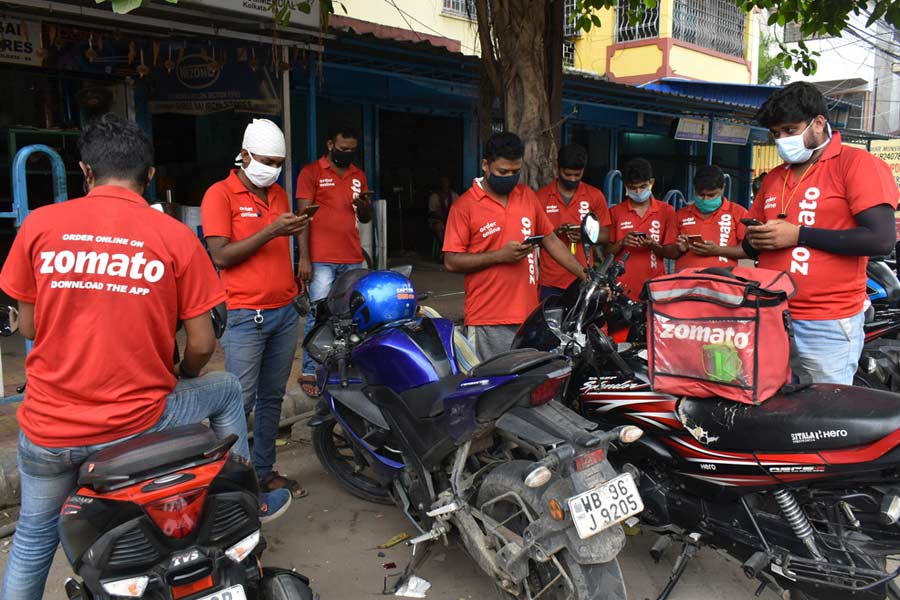Need for targeted efforts and regulatory frameworks, establishment of rest points, and setting up a grievance redressal mechanism, particularly for women, are among the suggestions that emerged out of a NHRC-hosted session on challenges faced by gig workers.
The National Human Rights Commission recently organised an open house discussion on the rights of gig workers, in a hybrid mode in New Delhi, a senior official said on Monday.
In her keynote address, NHRC's acting chairperson, Vijaya Bharathi Sayani said that there is a "need for targeted efforts" through regulatory frameworks to address gig worker's challenges, including long working hours, financial strain, and physical exhaustion.
Over 83 per cent of app-based drivers work more than 10 hours daily. This puts them under the physical and mental strain added by policies like '10-minute deliveries' and unrealistic targets which also result in "avoidable accidents", she was quoted as saying in the statement.
Women face additional challenges such as safety risks, erratic schedules, and physical demands, discouraging their participation and raising concerns about their well-being, the NHRC said.
Some of the suggestions that emanated from the discussions included exploring and expanding the e-Shram portal as a valuable tool in aiding such workers; supporting women gig workers with "maternity benefits, crèche facilities, and the establishment of rest points through public-private partnerships"; and building "financial literacy" of gig workers to promote transparency, besides providing opportunities to upscale their skills through vocational training programmes.
All companies engaging them should provide general and specific welfare schemes, including health benefits, accident insurance, old-age protection, and unemployment safeguards in case of accidents, etc., was another suggestion.
Setting up a grievance redressal mechanism, particularly for women gig workers and build awareness around POSH (Prevention of Sexual Harassment) policies to ensure a safer work environment; ensuring minimum wage enforcement and income transparency in all sectors engaging gig workers by the aggregators to bridge gender disparities; and developing schemes addressing the risks posed by climate challenge and ensure workers' safety during extreme weather conditions by the employing companies were also among the suggestions.
Reviewing of rating system of gig workers service which is "arbitrary", without providing any forum to them to hear their point of view also emerged as a suggestion during the session.
NHRC's Secretary General, Bharat Lal said it is crucial to check the implementation of laws such as the Social Security Code 2020 and the various other labour laws in India to ensure gig workers welfare.
He also noted that some states like Karnataka, Rajasthan and Jharkhand are focusing on providing social security to gig workers, but more needs to be done to address their "other major concerns" relating to health insurance, minimum wages, stress-free working conditions protecting their dignity.
Except for the headline, this story has not been edited by The Telegraph Online staff and has been published from a syndicated feed.











